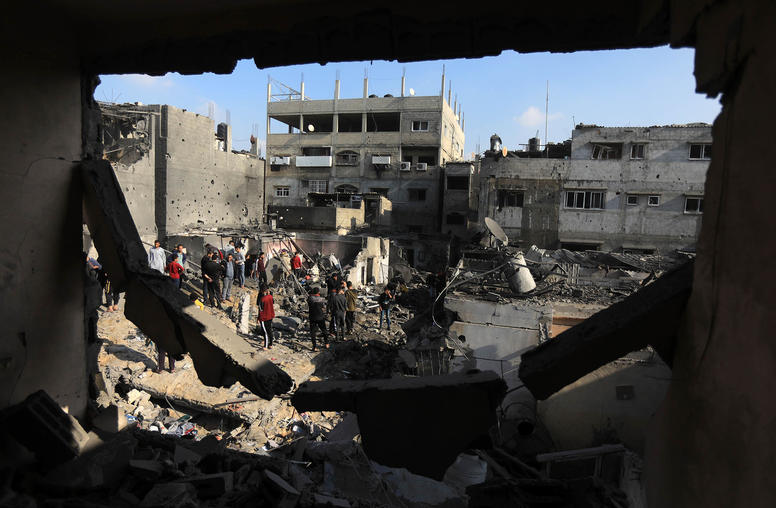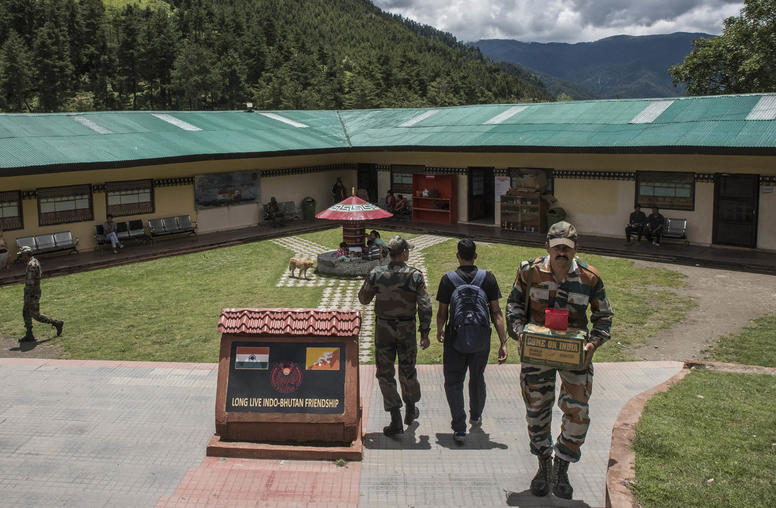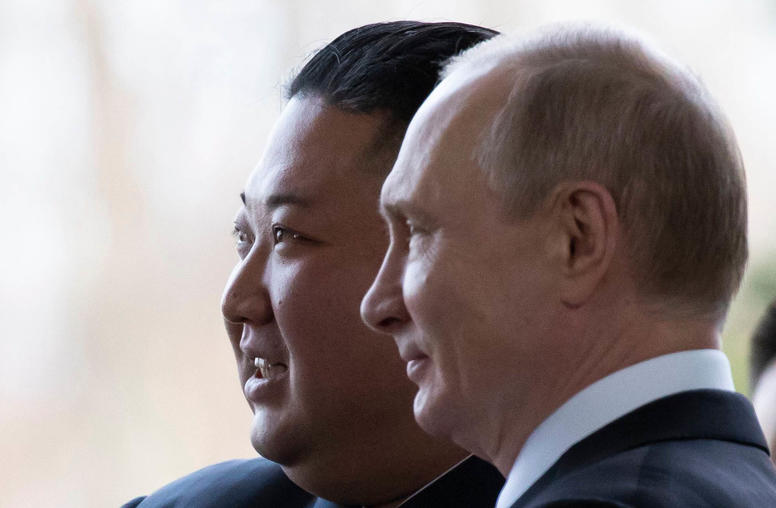Publications
Articles, publications, books, tools and multimedia features from the U.S. Institute of Peace provide the latest news, analysis, research findings, practitioner guides and reports, all related to the conflict zones and issues that are at the center of the Institute’s work to prevent and reduce violent conflict.

It’s Time to Resolve the Korean War
The greatest challenge to peaceful coexistence between North Korea and the United States is the technical state of war between the two countries. The United States and the Soviet Union may have been at ideological loggerheads, used proxies in regional conflicts and come close to direct superpower blows — but they were not in a state of war. Resolution of the Korean War should be set as a stated U.S. policy objective. This is a necessary Step Zero on the road to peaceful coexistence with North Korea today and could reduce the risk of deliberate or accidental conflict, nuclear or otherwise.

As Hezbollah-Israel Tensions Simmer, Lebanon’s Domestic Crises Drag On
Nearly six months after Hamas’s October 7 attack on Israel, tensions in two key flashpoints — Lebanon and Syria — continue to rise with significant Israeli airstrikes in both countries, leading to the highest death tolls in each country since October 7. Amid these rising tensions, ongoing clashes between the Lebanese militant group Hezbollah and the Israel Defense Forces (IDF) threaten to escalate into a wider war. At the same time, Lebanon continues to reel from a series of crises that have unfolded over the past four and a half years, highlighting Lebanon’s perilous position as the Gaza conflict continues to reverberate throughout the region.

Ce qu'un gouvernement de transition en Haïti aura besoin pour réussir
Après des semaines de consultations, et au milieu d'une quasi-rupture totale de l'ordre et de la loi en Haïti, un effort dirigé par la Communauté caribéenne (CARICOM) pour créer un nouveau conseil de gouvernance de transition pourrait être sur le point d'être achevé. La mise en place du conseil permettrait l'entrée d'une force de sécurité multinationale qui pourrait ensuite se joindre à la police nationale haïtienne pour rétablir l'ordre. Certains ont suggéré l'inclusion de "facilitateurs" pour la nouvelle force de sécurité - soutien aérien, drones, renseignement. Mais pour gagner la confiance du peuple haïtien, le nouveau conseil de gouvernance aura besoin de ses propres "facilitateurs" populaires, d'un moyen systématique d'inclure de nombreux autres secteurs de la société haïtienne qui sont actuellement ignorés ou délibérément exclus de la gouvernance.

What a Transitional Government in Haiti will Require to Succeed
After weeks of consultations, and amidst a near total breakdown of law and order in Haiti, a Caribbean Community (CARICOM)-led effort to create a new transitional governing council may be nearing completion. The council’s establishment would allow for the entry of a multinational security force that would then be able to join with the Haitian National Police and restore order. Some have suggested the inclusion of “enablers” for the new security force — air support, drones, intelligence. But to gain the trust of the Haitian people, the new governing council will need its own popular “enablers,” a systematic way to include many more sectors of Haitian society that are currently ignored or deliberately excluded from governance.

Promoting Peace and Stability in the Americas through Religious Freedom
The Western Hemisphere is generally known for protecting freedom of religion or belief. With a few notable exceptions, the countries of the region all enshrine religious freedom at the constitutional level and protect it through laws and policies. But in recent years, authoritarian governments in South America have increasingly viewed religious actors as threats to their regime’s survival and tried to control or crush independent religious activity.

Moscow Concert Hall Attack Will Have Far-Reaching Impact
On Friday, terrorists attacked the Crocus City Hall outside Moscow leaving 140 people dead and 80 others critically wounded. Soon after, the Islamic State claimed responsibility for the attack. The terrorist group, which is headquartered in Iraq and Syria, has several branches, including in South and Central Asia. Press reports suggest the U.S. government believes the Afghanistan-based affiliate of the Islamic State, ISIS-Khorasan (ISIS-K), was behind the attack. The Biden administration has publicly noted that it had warned the Russian government of the terrorism threat in early March in line with the procedure of “Duty to Warn.”

What Does the U.N. Cease-Fire Resolution Mean for the Israel-Gaza War?
On March 25, the United Nations Security Council (UNSC) passed Resolution 2728, calling for an “immediate” cease-fire in Gaza. The motion’s passage came after weeks of back and forth and posturing among the UNSC’s permanent and rotating members. The exact phrasing of the resolution and its relevance to the situation on the ground, as well as bilateral and multilateral relations — particularly U.S.-Israel ties — have been the subject of heavy public and media attention since Monday, raising questions about the resolution’s subtext, intent and limitations. USIP’s Robert Barron looks at these questions.

Angela Stent on the Terror Attack in Moscow
While ISIS has claimed responsibility for the devastating terror attack in Moscow, Putin has baselessly tried to shift the blame to Ukraine, says USIP’s Angela Stent: “[Putin] wants to use this to increase repression at home … and also to pursue a more aggressive path in Ukraine.”

What’s Driving India-China Tensions?
Since deadly clashes between India and China on their 2,100-mile disputed border — known as the Line of Actual Control (LAC) — nearly four years ago, the two countries have remained in a standoff and amassed an increasing number of troops on either side of the LAC. While India and China have held regular exchanges at the corps commander level since 2020, each side has also continued to militarize and invest in infrastructure in the high-altitude border regions, which may exacerbate risks of clashes or escalation. India-China competition has also deepened beyond the land border, particularly in the Indian Ocean region.

Three Conditions for Successful Engagement with North Korea
The September 13, 2023, meeting between Vladimir Putin and Kim Jong Un in Russia’s Amur Oblast marked a significant crippling of the decades-long U.S. pressure-based approach toward North Korea. The strategy of isolating and pressuring North Korea through United Nations Security Council resolutions to compel its nuclear disarmament in exchange for providing normalized relations, economic aid and sanctions relief may or may not ever have been a winning strategy, but now is no longer viable. The strategy required cooperation among the United States, South Korea, China and Russia, but this now seems a distant prospect.